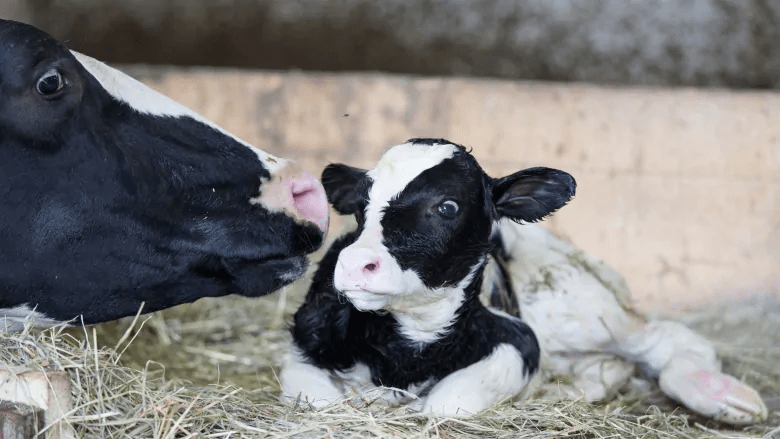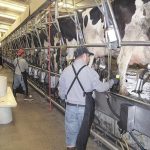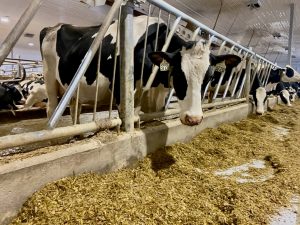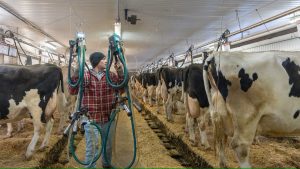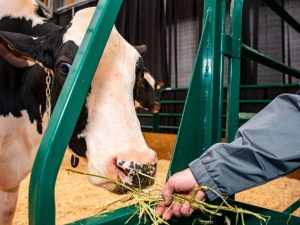
Quebec dairy producers say new rules covering how they can transport very young calves may mean they will have to slaughter the animals when they are born, rather than send them to the veal market.
As of February 20, 2020, the Canadian Food Inspection Agency (CFIA) says calves that are too young to eat grain or hay cannot go more than 12 hours without food, water and rest.
The former rules allowed 18 hours for transportation, and did not take into account the time spent loading and unloading the calves on transport trucks.
Producers say the new rules do not leave enough time to move the calves.
“Just think about global food waste,” said Michel Frigon, a dairy producer in the Saguenay region.
“At least if I can sell them and break even, ethically I prefer that.”
No use for male calves
Dairy cows must become pregnant and give birth to produce milk.
About half the time, the calves are male and are of no use on the farm, especially given that nearly all cows are now artificially inseminated.
The male calves are as young as seven days old when they are sent to an auction house, usually in Saint-Hyacinthe, Que., to be sold to another farm known as a feedlot or grower.
They’ll typically spend about eight months at the feedlot before being sent to the slaughterhouse.
In a statement, a CFIA spokesperson said the rules covering livestock transportation had not been updated since 1977.
They said the old rules do not reflect current science, nor do they meet the standards of Canada’s international trading partners and the World Organisation for Animal Health. The CFIA gave producers a one-year warning about the changes.
Not about the money
Dairy producers say the sale of male calves is a small fraction of their business. And they say that part of their business is now even smaller after Canada struck a trade deal with the European Union, flooding the market with European veal.
Paul Tenhave, a dairy producer in Val d’Or, Que., says selling calves represents five per cent of his business. But his transporter has already warned him that he will not carry the calves when the new rules are in place.
“I don’t want to kill them at the farm,” he said, adding that he is concerned about the public perception of slaughtering those calves.
Challenge of feeding calves
Kirk Jackson, vice-president of the Quebec Beef Cattle Association, says one of the complexities of the new rules has to do with feeding the calves before they make it to their next farm.
The calves need to be hand-fed milk in a bottle, and some producers will feed them raw milk, while others use powdered milk and water.
Jackson says a single transport truck can hold up to 180 calves from different farms, and changing their food on the road would likely result in the animals having diarrhea, something he says is not in the interest of the animals and something the transporters don’t want to have to deal with either.
He says some of Canada’s trading partners in the beef industry, namely those in European countries, have an easier time working within such time constraints because of geographic differences, including having population centres that are much closer together.
Jackson says calves that arrive at the auction house in Saint-Hyacinthe from the furthest regions like the Gaspé and Abitibi are provided special care, such as being given water and electrolytes, because they travel so far.
“We’re not stupid as producers, as an industry,” Jackson said. “We do what’s best for these animals already.”
Jackson says there are currently studies into animal welfare and the transportation of calves being conducted by the Beef Cattle Research Council, which is affiliated to the Canadian Cattlemen’s Association.
He wants the rules pushed back until those results are published, which is expected to happen in two years.
The CFIA says it is aware of the ongoing research and will review the findings once they are released. It says it is open to considering changes based on new evidence.
